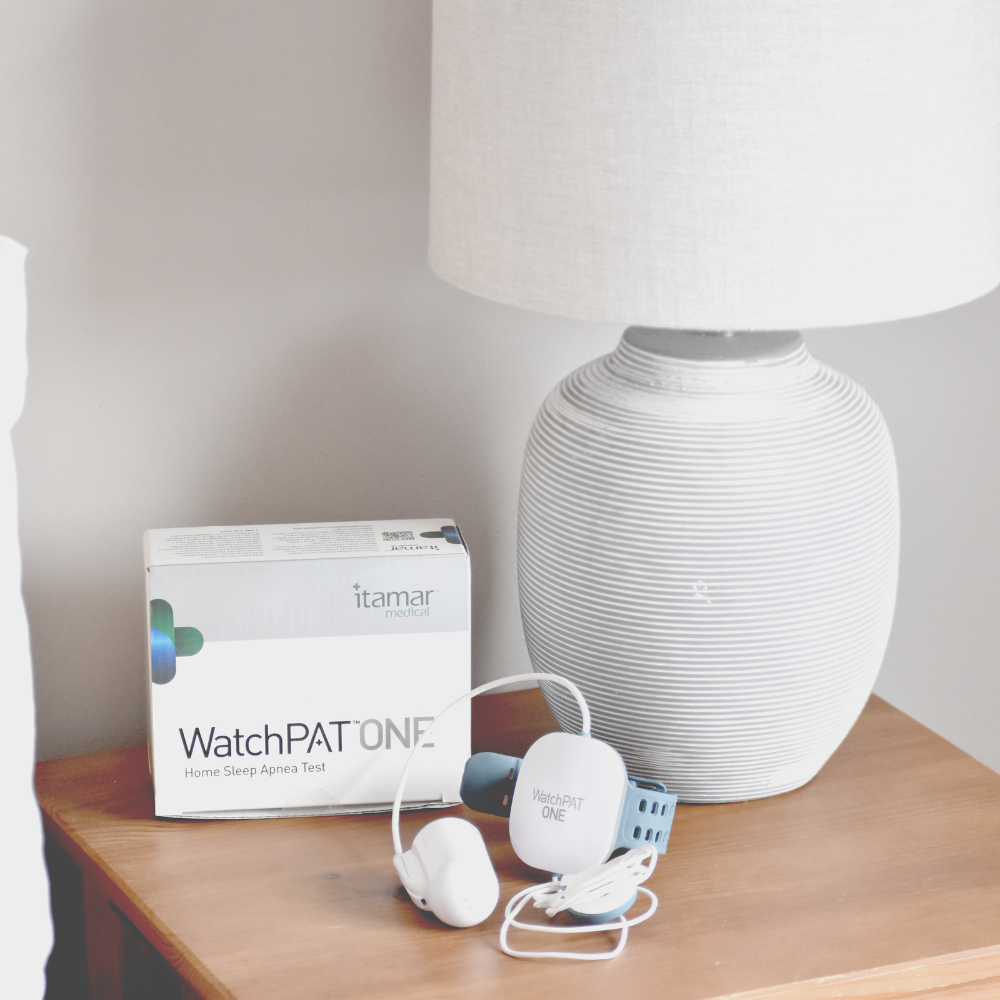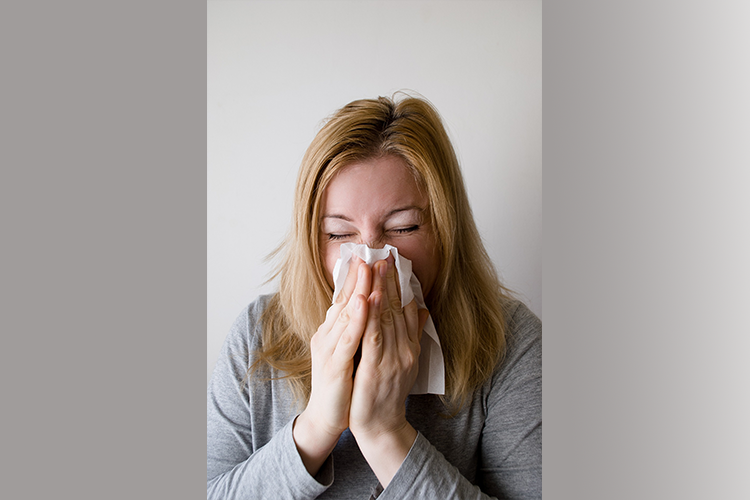Fact Checked
Intus Healthcare’s writers, customer service team, and sleep experts review and ensure this information is accurate.
Last updated on March 28th, 2025 at 02:34 pm
Unfortunately, millions of individuals cannot obtain proper nightly rest. Not only can this lead to tiredness and lethargy throughout the day, but a chronic lack of sleep may cause more severe issues such as high blood pressure, diabetes, a weakened immune system, and even heart disease.
While Obstructive Sleep Apnoea (OSA) is a severe medical condition which requires professional intervention, it is just as important to mention that there can be many other reasons why individuals are incapable of sleeping.
Table of Contents
Various conditions can cause you to have sleep problems; this article will discuss the many different reasons that you may be experiencing a lack of sleep.
Conditions that can cause sleep problems
1. Allergies
Although allergies are standard, their impact on sleeping can be significant. Some individuals are susceptible to airborne particles, including pollen, dust, mould, and certain chemicals. Such substances can cause issues, including itchy eyes, a runny nose, and a scratchy throat. Thus, it is often difficult to enjoy a restful evening because they are more prone to wake up.
Those who might already be suffering from OSA will have an even more difficult time breathing due to a narrowing of the airways.
2. Asthma
Sixty percent of those diagnosed with this condition may also suffer from a variant known as “nocturnal asthma”. Such a scenario is defined by coughing, wheezing and feeling out of breath. It stands to reason that sleeping will become more complex. Another issue is that certain drugs intended to combat the effects of asthma (such as standard inhalers) can cause further sleep problems.
3. Gastroesophageal Reflux Disease (GERD)
An excessive amount of acid production within the stomach causes GERD. Commonly referred to as heartburn, research has highlighted that as many as three out of four people will experience problems when falling asleep at least once every week. The acid produced within the stomach tends to enter the oesophagus when lying down in a prone position.
Therefore, it is best to eat smaller meals later in the evening and abstain from alcohol. Also, those who suffer from GERD may find relief by placing their head six inches higher than their body (such as by using a firm pillow).
4. An Enlarged Prostate
The medical term for this condition is known as benign prostate hyperplasia. An enlarged prostate gland will cause males to urinate on a more frequent basis when compared to normal individuals. Thus, they are more likely to wake up overnight to use the bathroom.
One out of every three men is estimated to be diagnosed with an enlarged prostate eventually. However, it is essential to note that several medications can help to treat this condition.
Congestive Heart Failure
Congestive heart failure is associated with an inability of the heart to pump blood throughout the body adequately. Another symptom of this condition involves the periodic shaking of limbs while asleep. It also needs to be mentioned that congestive heart failure will exacerbate the symptoms of OSA for those previously diagnosed. Speaking with a medical professional to learn about the options at your disposal is essential.
5. Chronic Obstructive Pulmonary Disease
Sometimes referred to as COPD, chronic obstructive pulmonary disease affects 1.2 million individuals across the United Kingdom. COPD refers to various disorders such as emphysema, asthma and chronic bronchitis.
The main takeaway point here is that COPD often leads to chest pain, difficulty breathing and coughing during the overnight hours. It is estimated that over 50 per cent of those who suffer from COPD will report sleeping issues regularly. An additional 15 per cent might also be suffering from OSA. Another confounding factor is that medications used to treat COPD (such as Prednisone and Albuterol) might further disrupt a sleeping schedule.
6. Mood Disorders
The majority of us suffer from periods of anxiety and “the blues” from time to time. However, those prone to chronic anxiety or diagnosed with clinical depression are at a much higher risk of developing sleeping problems.
It is, therefore, critical to get to the root of these issues. Reducing perceived levels of stress as well as finding coping mechanisms, can help to improve your quality of life and to restore a good night of rest. The treatments could involve therapeutic intervention, the use of medications or a combination of both. It is wise to speak with a doctor if you suspect you may suffer from depression or anxiety.
7. Diabetes
People with diabetes are likewise at a higher risk of developing sleeping issues. As the body tends to excrete excessive glucose levels into the urine, it is common to awake throughout the night to go to the bathroom. Furthermore, many individuals who have been diagnosed with diabetes are overweight.
Note: Diabetes increases the risk of developing OSA.
8. Night Sweats
Sweating during the night is normal if the room or your bedding is making you too hot. There might be simple reasons for sweating too much, but if you sweat so much, your night clothes and bedding are soaking wet, even though where you’re sleeping is cool. You might help.
If you have night sweats, you will not usually need treatment, but the GP will want to check if you have any other symptoms. If you’re taking medicine and the GP thinks it might be causing night sweats, they may prescribe a different one.
Common causes of night sweats include:
- Menopause symptoms (hot flushes)
- Anxiety
- Antidepressants, steroids and painkillers
- Low blood sugar
- alcohol or drug use
9. Peripheral Neuropathy
Peripheral neuropathy is damage throughout the limbs, leading to pain and discomfort. In the UK, almost 1 in 10 people aged 55 or over are affected by peripheral neuropathy.
It’s recommended that people with the highest risk of peripheral neuropathy, such as those with diabetes, have regular check-ups.
Symptoms of peripheral neuropathy can include the following:
- numbness and tingling in the feet or hands
- burning, stabbing or shooting pain in affected areas
- loss of balance and coordination
- muscle weakness, especially in the feet
10. Alzheimer’s Disease
Those who have been diagnosed with Alzheimer’s disease (particularly anyone who is in the later stages) will often be found sleeping during the day. When this habit is combined with insomnia during overnight hours, it is clear to see why anyone with this condition should pay particular care to their sleeping habits. The good news is that several medications can help these individuals obtain an excellent night of rest.
11. Stress and Anxiety
While we all experience anxiety from time to time, there is no doubt that current events can stir up more stress. A handful of steps can help you attain the night’s rest that is required to remain healthy.
First and foremost, try to maintain the same schedule every night. This will help your body adjust to its natural circadian rhythm. As many of us are now confined to our homes without a definitive work routine, this piece of advice is particularly relevant.
Exercise is another critical component of developing healthy sleeping habits. There are several reasons behind this observation. Not only will physical activity enable your body to produce stress-busting hormones, but the resulting state of exhaustion is an excellent way to rest once your head finally hits the pillow. It is wise to consult with a doctor or a personal trainer before adopting such a regimen in order to obtain professional advice.
It is just as important to avoid napping during the day. This habit can confuse your body, making it much more difficult to fall asleep at the appropriate hour. If you feel tired or lethargic at home, there are several activities which can provide you with a much-needed energy boost, such as:
- Stretching
- Deep-breathing exercises
- Dancing
Free-movement dancing — just moving to music — is an excellent way to fire up a little energy. Remember your younger days, and just move it!
We should also mention that these very same activities can help to alleviate feelings of worry, stress and anxiety.
12. Obstructive Sleep Apnoea
We have mentioned obstructive Sleep Apnoea several times throughout this article. A narrowing of the airways causes OSA during the overnight hours. This makes it more difficult for the body to obtain the required amount of oxygen and arises because it can often be seen concurrently alongside a host of other conditions.
As a result, those who suffer from OSA will typically present a handful of symptoms, including:
- Waking up gasping for air
- Choking and coughing
- Extremely loud snoring (often noticed by a partner)
- Tiredness throughout the day
The main problem here is that these conditions will only improve with intervention. It is crucial to obtain an at-home sleep test for an accurate diagnosis.
If you are concerned that you have Sleep Apnoea, you can start with our FREE OSA risk assessment or purchase our In-Home Sleep Test.

Home Sleep Apnoea Test
The test monitors your heart rate, snoring intensity, blood oxygen levels, body positioning, and more, providing accuracy comparable to testing used in sleep clinics for in-depth sleep analysis.
The simple-to-use test takes just one night to complete, and results are returned within two working days after completion.
Our experienced NHS-qualified sleep professionals independently analyse all studies, providing follow-up advice and support.
About Our Editorial Team
Danni is a degree-educated content writer passionate about helping those with Sleep Apnoea sleep better; she works closely with our clinical and customer care teams to ensure that each article is thoroughly researched and accurate.
Her writing aims to inform, support, and advise readers about Sleep Apnoea, helping to raise awareness and promote effective treatment options.
She has written many health-focused articles, reaching hundreds of readers annually, to help people sleep better and live healthier lives.
Lateisha King is an experienced Sleep Clinician with advanced training in polysomnography and respiratory health.
With over six years of experience, including at the prestigious Guy’s and St Thomas’ NHS Foundation Trust Hospital, she has conducted and reviewed more than 500 diagnostic sleep studies.
Her expertise in sleep science ensures that all articles align with the latest data and treatment protocols, providing readers with trustworthy and practical advice to improve their sleep health and overall well-being.
Published: April 2, 2020





